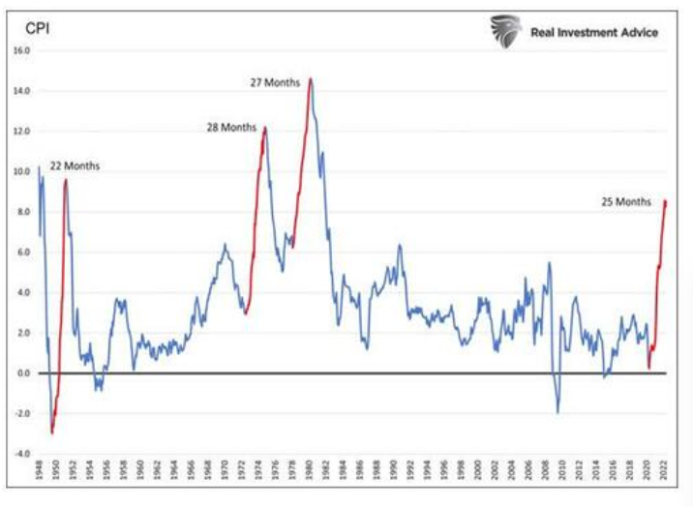Recession Signs and Consequences
The signs of an impending recession is a complicated combination of economic factors that include inflation, interest rates, lending, the value of the dollar, Government regulation and subsidies, corporate and personal liquidity, the stock market and unemployment figures.
The consequences of the recession, on the other hand, are fairly simple. More companies and individuals are declaring bankruptcy, and people are spending less in an effort to get debt to more manageable levels.
Bankruptcy Ripples through the Recession
 Just like a stone thrown into a calm pond, bankruptcy leads to a ripple effect that broadens with time. When one company declares bankruptcy, it triggers a series of events. First of all, most corporate bankruptcies involve a number of lay-offs. Lay-offs contribute to a higher unemployment rate and a more saturated labor pool. In other words, highly skilled and experienced workers compete with recent college graduates for the handful of jobs that are available. Those who are unable to find steady employment are forced to spend less.
Just like a stone thrown into a calm pond, bankruptcy leads to a ripple effect that broadens with time. When one company declares bankruptcy, it triggers a series of events. First of all, most corporate bankruptcies involve a number of lay-offs. Lay-offs contribute to a higher unemployment rate and a more saturated labor pool. In other words, highly skilled and experienced workers compete with recent college graduates for the handful of jobs that are available. Those who are unable to find steady employment are forced to spend less.
Secondly, bankruptcies make lenders more reluctant to lend to anyone, not just those who have previously filed chapter 11. This reluctance means fewer consumer loans, fewer small businesses are started and fewer medium sized businesses can grow. This means there are fewer new jobs created which, in turn, means unemployment rates remain the same or continue to escalate. Once again, unemployment means people cut back on their spending.
Reduced Consumer Spending
Individually, consumers who spend less appear, in many ways, healthier than those who overspend. They are more likely to eat at home instead of eating out, to purchase used products rather than new items, to travel less and to use coupons more often. While there is nothing innately wrong with any of those decisions, the effects on the economy remain. When diners choose to eat at home rather than in restaurants, the restaurants lose business. When consumers purchase used items at thrift stores, garage sales or on Craigslist, it minimizes the number of new products that need to be manufactured. That is good for the environment and the individual but causes problems for manufacturers and distributors who have over expanded. Less travel may conserve natural resources, but it also reduces the profit margin for tourist attractions, airlines, hotels and oil companies.
Smaller profits mean businesses are forced to cut costs by restructuring (which usually involves lay-offs), outsourcing (which cripples the domestic economy even further) or spending less in general (which impacts the profits of vendors in similar situations).
And so the cycle continues. Bankruptcy leads to unemployment which leads to less spending which leads to more bankruptcies. Less spending means less production which means less profit which means fewer jobs which leads to less spending.
 Editor’s Note: The reason that recessions occur in the first place is because they are necessary to counteract the over-expansion that occurred previously. The reason there was an over expansion was generally because of an increase in the money supply. As the government expands the money supply, companies base their future projections on an assumed value for the currency based on the previous value. But it appears to the companies that more of the dollars are flowing in. So they conclude that business is improving and expansion is called for. But the increase in revenue is simply an illusion.
Editor’s Note: The reason that recessions occur in the first place is because they are necessary to counteract the over-expansion that occurred previously. The reason there was an over expansion was generally because of an increase in the money supply. As the government expands the money supply, companies base their future projections on an assumed value for the currency based on the previous value. But it appears to the companies that more of the dollars are flowing in. So they conclude that business is improving and expansion is called for. But the increase in revenue is simply an illusion.
What the companies don’t yet realize is that because the total volume of the currency in circulation (the money supply) has increased the value of each individual currency unit has decreased. So in order for a business to just stay in the same spot they need an increased flow of currency. But they have been tricked into thinking they have more money and so they spend it on things they wouldn’t have had the illusion not existed. One sign of this excess consumption is the rise of bubbles whether they be housing, Energy, the stock market or education loans. The excess money has to flow somewhere and as it flows it creates bubbles.
When the above mentioned adverse effects of the recession occur, it is nature’s way of wringing the excess production (and consumption) out of the system and getting the economy back into balance. Since more was produced (and consumed) than would have been without the inflationary stimulus, balance requires that less be produced and consumed for a period in order to return the system to equilibrium. Just like a junkie that doesn’t want to come down off a high the economy requires bigger and bigger doses to get the same effect but the longer the economy refuses to face reality the harder the crash will be when it eventually comes. Tim McMahon~ editor
See Also:
It is Possible to Start a Profitable Company During a Recession
Is it Time to Expand Your Small Business?
4 Practical Ways to Keep Your Business Profitable during a Recession
Image courtesy of Just2shutter / FreeDigitalPhotos.net

